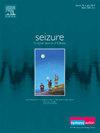Short and long-term side effects of the Classic Ketogenic Diet in pediatric epilepsy treatment: A systematic review of clinical trials
IF 2.8
3区 医学
Q2 CLINICAL NEUROLOGY
引用次数: 0
Abstract
Background/objective
Classic Ketogenic Diet (CKD) is a well-known diet therapy with high fat and low carbohydrates which is used to treat children with medication-resistant epilepsy (MRE). As CKD is a restricted diet, it can cause side effects which are major reason for diet discontinuation. In this study, we aim to systematically identify and categorize these side effects by type and duration to optimize CKD use and increase adherence.
Method
This study followed PRISMA 2020 guidelines and is registered in Prospero (CRD42024566216). We searched PubMed, Scopus, Web of Science, and Google Scholar for English-language clinical trials on CKD side effects in children under 18 with MRE. The last search was conducted on January 8, 2025, with no time restrictions. Side effects from 26 clinical trials were extracted, categorized as short-term (≤3 months) or long-term (>3 months), and prevalence estimated using reference populations for each side effect. We categorized side effects in nine groups: gastrointestinal (GI) issues, neurological complications, weight loss, dyslipidemia, infection, hyperuricemia, bone mineral density (BMD) decrease/osteoporosis and renal stones.
Result
In most patients, CKD does not have adverse side effects that cause diet termination and most side effects can be managed or treated to increase adherence. In the short-term, GI issues and neurological complications were most common side effects with prevalence of 49 % and 25 % respectively. In long-term GI issues still remain the most prevalent side effects with 44 % prevalence. Moreover, lower fat-to-carbohydrates ratios like 2.5:1 KD may reduce side effects but potentially compromise efficacy.
Conclusion
Most CKD side effects are treatable and transient and these results support tailored KD strategies to enhance adherence and improve epilepsy control.
经典生酮饮食在小儿癫痫治疗中的短期和长期副作用:临床试验的系统回顾
背景/目的经典生酮饮食(classic Ketogenic Diet, CKD)是一种著名的高脂肪低碳水化合物饮食疗法,用于治疗儿童抗药性癫痫(MRE)。由于CKD是一种限制性饮食,它可能导致副作用,这是饮食中断的主要原因。在这项研究中,我们的目标是系统地识别和分类这些副作用的类型和持续时间,以优化CKD的使用和增加依从性。方法本研究遵循PRISMA 2020指南,在Prospero注册(CRD42024566216)。我们检索了PubMed、Scopus、Web of Science和b谷歌Scholar,以获取18岁以下MRE患儿CKD副作用的英文临床试验。最后一次搜索是在2025年1月8日进行的,没有时间限制。从26个临床试验中提取副作用,将其分类为短期(≤3个月)或长期(≤3个月),并使用每种副作用的参考人群估计患病率。我们将副作用分为九组:胃肠道(GI)问题、神经系统并发症、体重减轻、血脂异常、感染、高尿酸血症、骨密度(BMD)降低/骨质疏松症和肾结石。结果大多数CKD患者没有导致饮食终止的不良副作用,并且大多数副作用可以控制或治疗以增加依从性。在短期内,胃肠道问题和神经系统并发症是最常见的副作用,患病率分别为49%和25%。长期胃肠道问题仍然是最普遍的副作用,发生率为44%。此外,降低脂肪与碳水化合物的比例,如2.5:1 KD,可能会减少副作用,但可能会损害疗效。结论大多数CKD副作用是可治疗的和短暂的,这些结果支持有针对性的KD策略来增强依从性和改善癫痫控制。
本文章由计算机程序翻译,如有差异,请以英文原文为准。
求助全文
约1分钟内获得全文
求助全文
来源期刊

Seizure-European Journal of Epilepsy
医学-临床神经学
CiteScore
5.60
自引率
6.70%
发文量
231
审稿时长
34 days
期刊介绍:
Seizure - European Journal of Epilepsy is an international journal owned by Epilepsy Action (the largest member led epilepsy organisation in the UK). It provides a forum for papers on all topics related to epilepsy and seizure disorders.
 求助内容:
求助内容: 应助结果提醒方式:
应助结果提醒方式:


